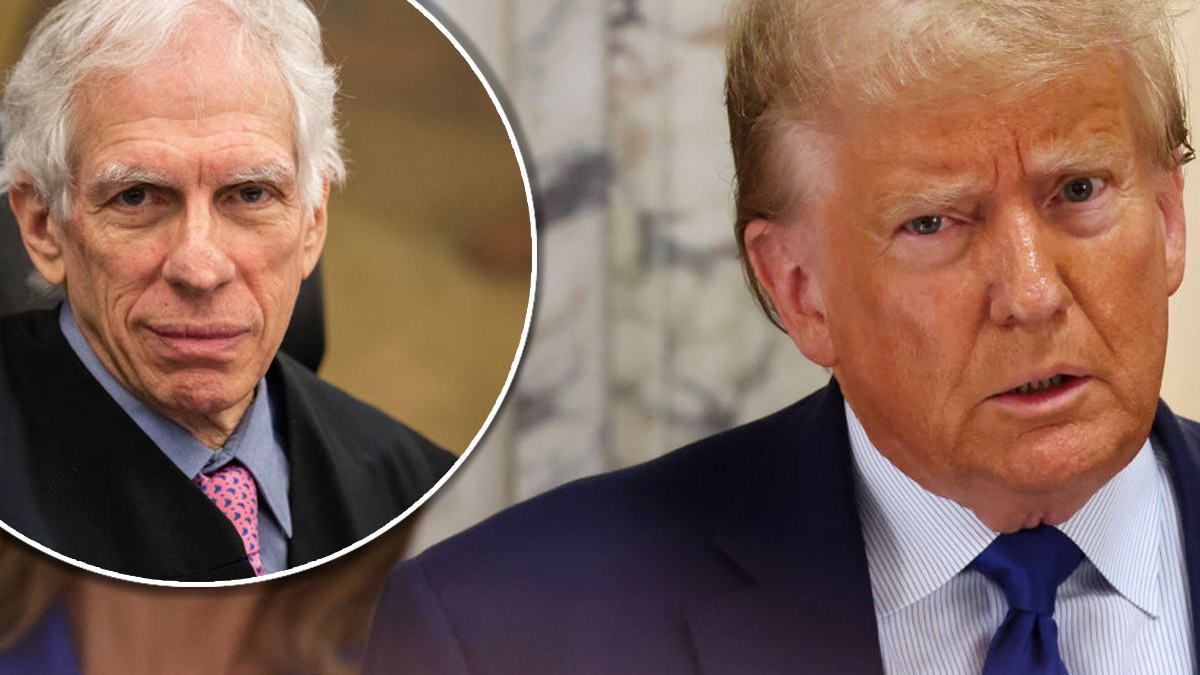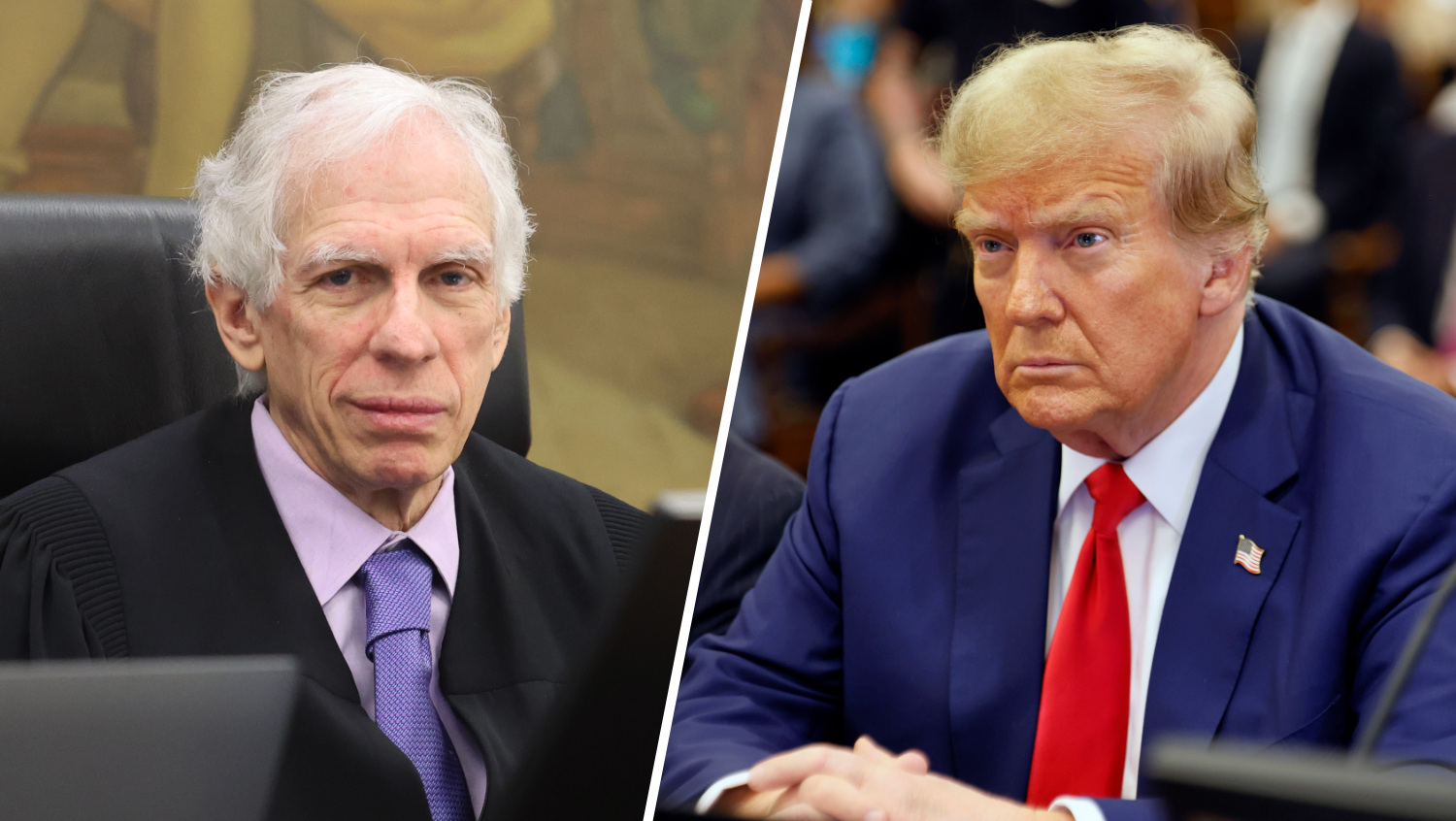A court ruling will allow former President Donald Trump's lawyers to subpoena communications between an expert New York City real estate lawyer and presiding Judge Arthur Engoron to see if the two improperly discussed the Trump civil fraud case.
It was Engoron himself who, at least partially, green-lit the subpoena as part of that ruling Tuesday.
"The subpoena is not wholly without merit," Engoron wrote.
The judge said the Trump defense team is entitled to see certain communications, noting that the lawyer, Adam Leitman Bailey, had "boasted" during a TV interview with NBC New York that he had offered Engoron unsolicited advice about the case three weeks before he issued his $454 million penalty ruling. Bailey had filed a motion opposing Trump’s subpoena request.
Bailey was not involved in the Trump civil fraud case. But during two on-camera, on-the-record interviews in February with NBC New York, Bailey said he had a discussion with Engoron in which he advised the judge about the law at issue in the Trump case, and explained during that conversation that huge penalties would be bad for business in New York.
Get Tri-state area news delivered to your inbox. Sign up for NBC New York's News Headlines newsletter.
“I know he respects my real estate knowledge, so I gave it to him. I gave him everything I knew. He had a lot of questions you know, about certain cases. We went over it," Bailey told NBC New York.
Last month, Trump’s legal team filed a motion asking Engoron to recuse himself from the Trump civil fraud case, citing an investigation launched in May by the New York State Commission on Judicial Conduct. The existence of that investigation was first reported by NBC New York. Sources familiar say Bailey has already been questioned at least once and received similar subpoenas in connection with the Commission’s investigation.
Engoron’s ruling Tuesday was silent on the Trump team’s request that he recuse himself from the case.
While the judge did not grant a Bailey request to quash the subpoena entirely, Judge Engoron did limit its scope. He said the Trump defense team had essentially sought “any and all communications Mr. Bailey has had with the Court or its staff about anything since the beginning of time,” amounting to what he called “a wholesale fishing expedition.”
Engoron said that the subpoena should not include all of Bailey's communications with him and his staff, noting that Bailey has regularly appeared in his court on a number of cases.
The judge gave Bailey seven days to produce any communications or documents in his possession that relate to the Trump civil matter.
In his ruling, the judge did not indicate whether or not he and Bailey had ever communicated in emails or texts about the Trump civil fraud case, though during a Feb.16 on-camera interview with NBC New York, Bailey suggested he was texting Engoron in real time to get intel on his imminent penalty ruling.
The rules of judicial conduct generally bar judges from discussing their pending cases with outside parties and require judges to disclose any communications or expert advice to the parties. No such disclosure took place in this case.
Engoron has denied impropriety. In February, a court spokesman said that “no ex parte conversation concerning this matter occurred between Justice Engoron and Mr. Bailey” and that the judge “was wholly uninfluenced” by his interaction with Bailey.
The ruling Tuesday contained Engoron’s only public statement on the controversy since that statement in February.
"Mr. Bailey has opened the door by making his extraordinary claims to the media, in which he, by his own admission, stated that he attempted to offer unsolicited legal advice to this court," Engoron said.
The rules of judicial conduct generally bar judges from discussing their pending cases with outside parties and require judges to disclose any communications or expert advice to the parties. No such disclosure took place in this case.
Bailey did not respond to a request for comment.




